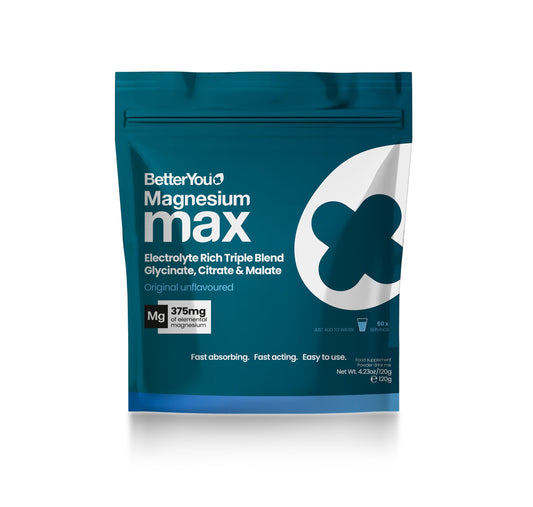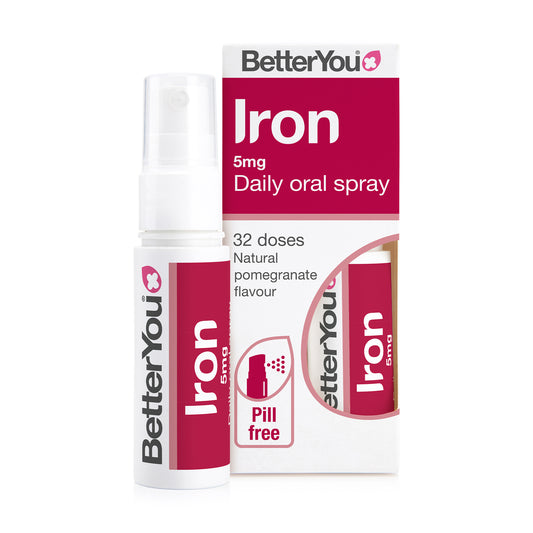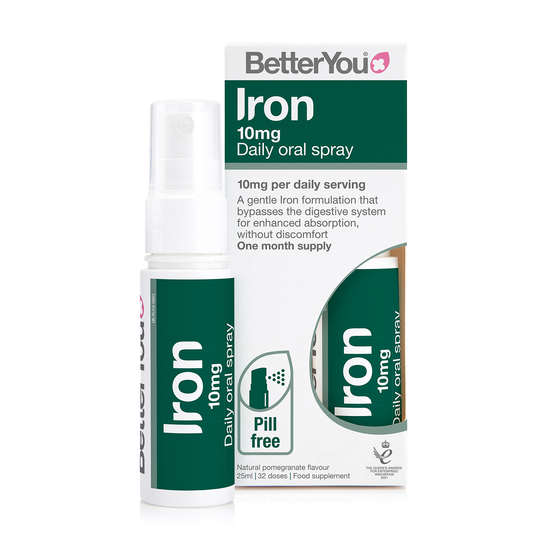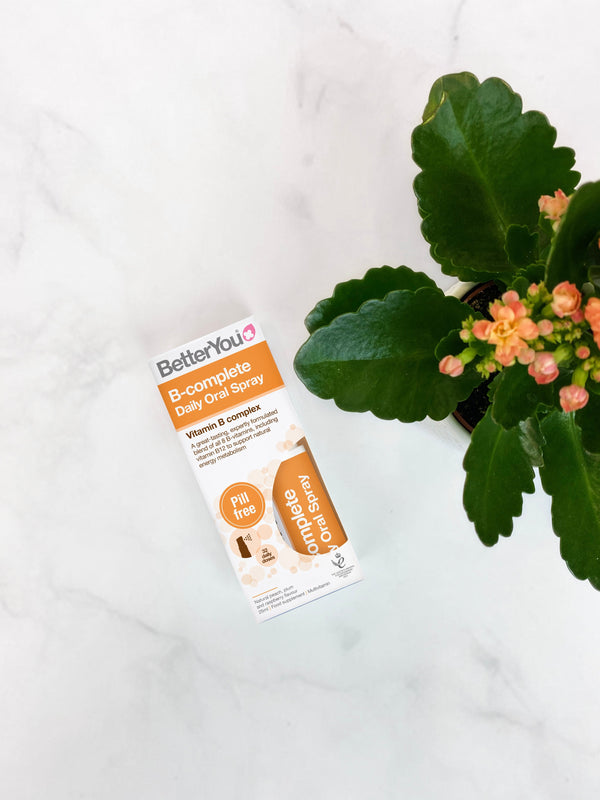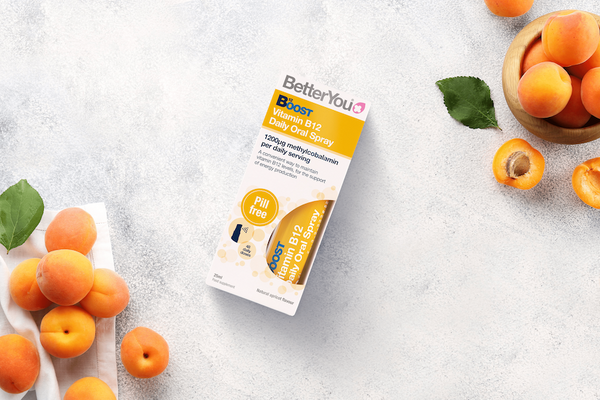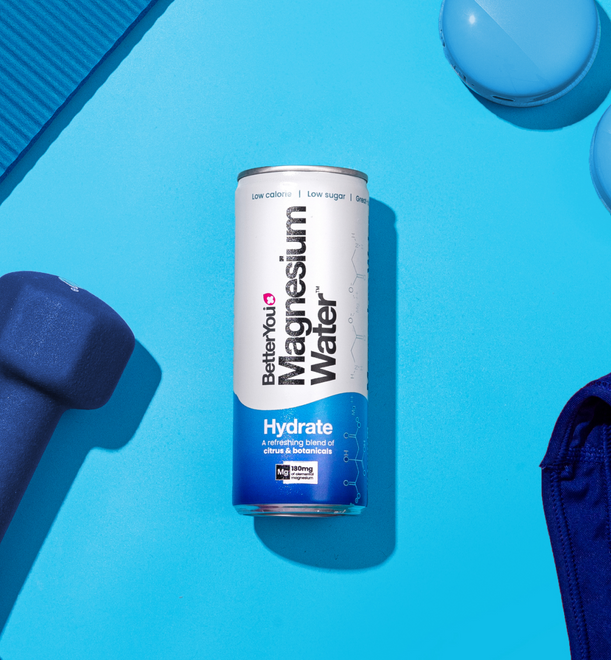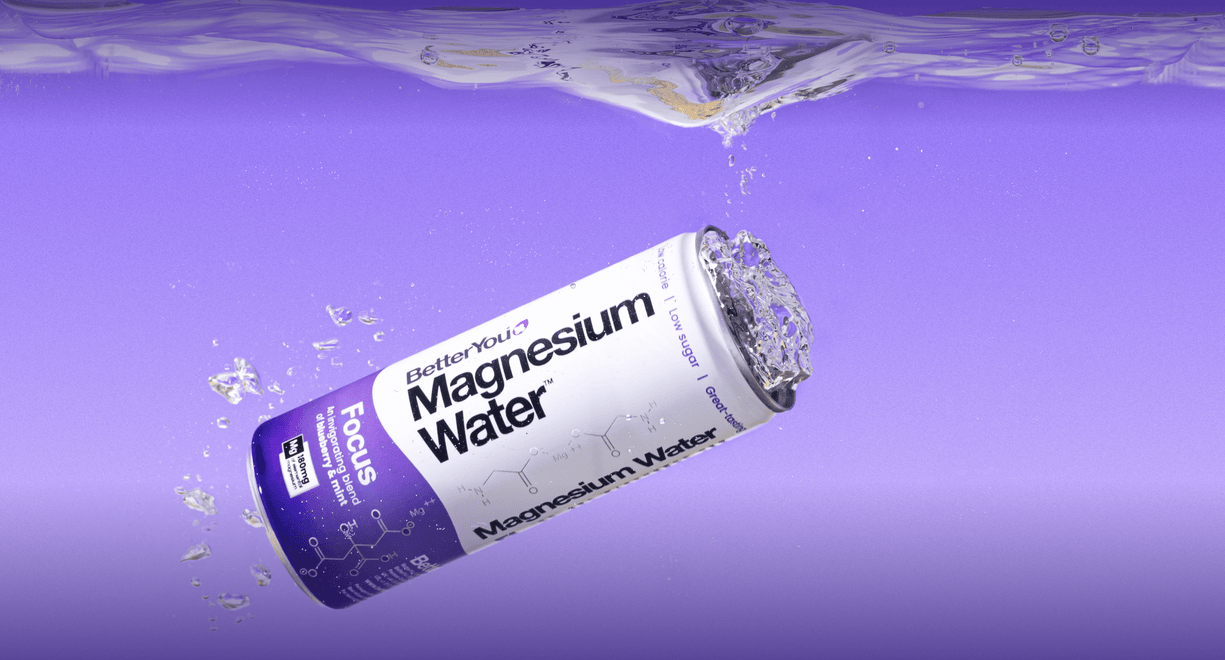Iron deficiency anaemia affects around 500 million people globally. Iron is one of the key minerals our body needs to work its best. Anaemia can cause tiredness and even shortness of breath. Ensuring you have optimum levels of this nutrient is vital for preventing iron deficiency anaemia. Find out the signs, causes, who’s at risk, and simple ways to prevent anaemia.
Table of Contents:
- What is Iron Deficiency Anaemia?
- 10 Symptoms
- 4 Causes
- At Risk Groups
- Prevent Iron Deficiency Anaemia with BetterYou
What is Iron Deficiency Anaemia?
Iron deficiency anaemia is a type of anaemia caused by low iron levels in the body. Anaemia is a condition where your blood lacks optimum levels of red blood cells and so finds it more difficult to carry oxygen around the body to your muscles and tissues. There are other types of anaemia such as pernicious anaemia caused by low B12. Just because you have an iron deficiency does not necessarily mean that you have this condition. Speaking to your doctor for the appropriate tests could help you identify whether you are suffering from iron deficiency anaemia or not. Iron supplements are the most common way to treat iron anaemia.
10 Symptoms of Iron Anaemia
The signs of iron deficiency anaemia are not always obvious straight away and can grow over time as your condition worsens. These are the 10 symptoms of iron deficiency anaemia you should look out for:
- Reduced appetite - A key sign is a reduced appetite, this could in turn cause you to become more deficiency due to a reduced intake of vitamins and minerals. Using a daily food supplement could help to increase your nutrient levels.
- Brittle nails - Iron is an essential mineral in maintaining your skin, hair, and nails. This mineral deficiency therefore can cause your nails to become brittle and break easily.
- Fatigue - Due to the lack of oxygen being transported to your muscles whilst experiencing iron deficiency anaemia you may find yourself feeling tired. Frequent use of an energy supplement contains iron and B12 could help to stem fatigue.
- Pale skin - With less red blood cells you’ll notice that your skin appears paler, as less of these cells can reach the surface of the skin.
- Feeling weak - As with the fatigue, the lack of oxygen to your muscles can make them feel weak.
- Chest pain or shortness of breath - As your lungs function with muscles, a lack of oxygen to the lung tissue and muscle can make breathing more difficult.
- Headaches - Your brain needs lots of oxygen to function normally, with a limited amount being delivered you may find yourself suffering from headaches.
- Cold extremities - With a lessened blood flow due to iron deficiency anaemia you may find your hands and feet become cold very easily.
- Unusual cravings - One of the more odd signs of iron deficiency anaemia is unusual cravings, this is also called ‘pica,’ and causes you to crave non-food substances such as soil.
- Sore tongue - As with the other symptoms of iron deficiency anaemia this sign is caused by a lack of oxygen to this part of the body.
Learning to identify these symptoms of iron deficiency anaemia, could help ensure you see the benefits of iron for your health. It is worth considering that iron overload, known as Hemochromatosis, can have similar symptoms to iron deficiency. It is worth using an iron test to identify your levels. Always consult your medical professional if you are concerned about your nutrient levels.
4 Causes of Iron Deficiency Anaemia
The base cause of iron deficiency anaemia is a lack of iron in the body. A number of factors can lead to this in the first place:
- Lack of iron intake - The most obvious cause of iron deficiency anaemia is simply having too low an intake. This can be easily remedied with a vitamin and mineral oral spray containing iron.
- Pregnancy - When you’re pregnant you pass a large portion of your nutrients onto your growing baby, this can leave you deficient yourself. During this precious time you should take a pill-free pregnancy supplement to ensure both you and baby receive all the nutrients you need.
- Heavy periods - During your period you lose blood and along with it, iron. Particularly if your periods are heavy you may find you experience iron deficiency anaemia.
- Inability to absorb iron - Certain conditions, such as celiac disease, can make it more difficult to absorb iron through the gastrointestinal system and so can leave you experiencing anaemia. Luckily, our iron oral spray is absorbed through the soft tissue in the mouth, bypassing the digestive system completely.
Who’s At Risk?
Without the right diet everyone could be at risk of iron deficiency anaemia, however there are certain groups that are more prone to the illness. These are:
- Women - Due to regular periods, women lose more iron and so are at a higher risk of deficiency.
- Pregnant people - Providing both yourself and your baby with nutrients can leave you a little low. Supplementing prenatal vitamins during this time could combat iron deficiency anaemia.
- Genetics - Genetic conditions, such as celiac disease, can make it more tricky to absorb iron.
- Vegetarians and vegans - A primary source of iron is from red meat. Those with diets that exclude this food group could be at a higher risk of iron deficiency anaemia. Ensuring you supplement daily with a vegetarian supplement or vegan supplement can ensure your levels remain at an optimum.
- Teens - Growth spurts can cause the body to use more nutrients to help build muscle and bone. For this reason, teenagers still growing may find themselves at risk of iron deficiency anaemia.
- Older people - As we age our bodies can become less efficient at absorbing minerals.
- High performance athletes - Iron plays an essential role in muscle usage and recovery. Athletes who spend a lot of time training will need higher levels of iron to ensure they don’t develop anaemia.
Preventing Iron Deficiency Anaemia with BetterYou
If you are concerned that you may have iron deficiency anaemia, you can easily check at home with our iron test kit. However, you may wish to also consult your doctor.
Prevention and treatment of iron deficiency anaemia follows the same course: supplement iron. However, traditional iron tablets can be harsh on your stomach, and cause discomfort. Our collection of pill-free iron supplements is formulated so you can take your daily dose easily and discomfort-free!
The oral sprays work by being absorbed through the soft tissue in your mouth, directly into the rich venous system below. This formula allows for efficient primary absorption for even those with gastrointestinal conditions.
Our full range to combat iron deficiency anaemia is suitable for vegans and vegetarians, and even acts as a gluten free supplement.
Iron Dosages
The NHS recommends the following dosages of iron:
- 8.7mg a day for men 18+
- 14.8mg a day for women aged 19 - 50
- 8.7mg a day for women 50+
Children tend to need less than the above and we recommend that for supplementing your kids you use only our Iron Oral Spray which is in our children's vitamin range rather than the Iron 10 Oral Spray. The following doses apply:
- Age 3 - 5 - 1 spray a day
- Age 6 - 8 - 2 sprays a day
- Age 9 - 12 - 3 sprays
- Age 12+ - 4 sprays
Case study: Highest Iron Levels in Years for Lifelong Anaemia Sufferer
Absorbing key nutrients has been a daily struggle for blogger Natalie Garton (aka The Spoonie Mummy) who’s battled chronic illnesses all her life.
“I was diagnosed with arthritis aged fifteen months and have battled chronic anaemia ever since.
Many chronic illnesses inhibit the production of red blood cells in the body, leading to anaemia. For me, this was treated with oral iron tablets for many years, until I was diagnosed with Crohn’s Disease aged 26. I was then switched to liquid iron, but this caused vomiting and I now rely on iron infusions to keep my levels above the danger zone."
Natalie began trialling our Iron Daily Oral Spray after we sent her a sample to review.
“It is especially helpful to people like me who have Crohn’s Disease and struggle to absorb things in the digestive system. The inflammation caused by Crohn’s Disease in the stomach and intestines can inhibit the absorption of key nutrients.
A week after trying BetterYou’s Iron Spray, I had a blood test and was really pleased when I went to my doctor to be told I was at 12.1!
This is the highest it has been for absolutely years. She asked me if I had been doing anything differently and I told her about the BetterYou Iron Spray and she said – whatever it is, keep doing it!
I was so happy with this result, as fatigue has really been getting me down the last two or three months. Knowing that my iron levels are decent is one less thing to worry about.
The oral spray is really easy to take. It doesn’t have to be taken during a meal or at a particular time, so I could leave it on the kitchen side and just grab it during the day at any point to use which makes it really easy.
The first time I noticed a difference was when I went away for the weekend and forgot my spray. The fatigue really hit me again, so I felt that it must have been making a difference.
I think the results speak for themselves and I would highly recommend this product to anyone struggling with anaemia, particularly if they are finding that normal iron supplements are not helping or causing further issues.”
Pill-free supplements from BetterYou
Our range of vitamin oral sprays and topical magnesium supplements provide a fast, effective alternative to traditional tables and capsules. Scientifically formulated to deliver maximum nutrient absorption, with minimum fuss, to help you feel and live better.
Take control of your health today with our magnesium supplements to aid natural sleep, vitamin D supplements to boost your immunity and our at-home health checks to get a clear picture of your nutrient levels.
